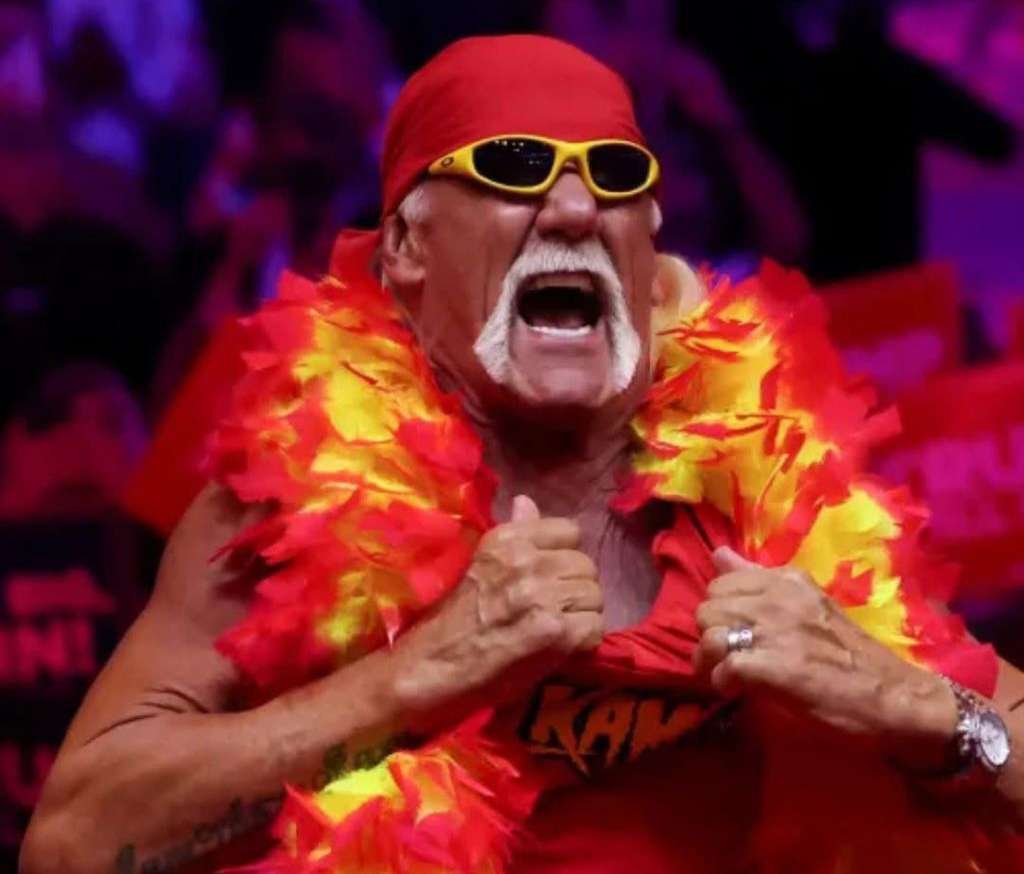Sports
Hulk Hogan, Wrestling Icon, Dies at 71

The world of professional wrestling has lost one of its most iconic and transformative figures. Hulk Hogan, the larger-than-life WWE legend who redefined the industry and became a household name, passed away at the age of 71.
TMZ Sports confirmed the news following reports from Clearwater, Florida, where medics were dispatched to his home early Thursday morning, responding to a cardiac arrest. Despite the efforts of first responders, Hogan was tragically pronounced dead shortly thereafter.
Hogan’s career spanned decades, but his impact on the sport and popular culture was immeasurable. He didn’t just compete in the ring; he was instrumental in turning professional wrestling into a mainstream spectacle.
Hogan’s charisma, theatricality, and ability to connect with fans, especially children, took the sport to new heights, solidifying his place in history as one of wrestling’s most celebrated and influential figures.
Born Terry Gene Bollea on August 11, 1953, Hogan’s rise to fame was not an accident. It was the result of immense talent, strategic decision-making, and a magnetic persona that made him a force both in and out of the ring.
He was first introduced to the WWE (then known as the WWF) in the late 1970s, where he quickly became the face of the company.
His towering frame, signature moustache, and catchphrase “Whatcha gonna do when Hulkamania runs wild on you?” made him an unforgettable presence. Hogan’s persona was designed to appeal to both children and adults, blending the theatrics of entertainment with the raw appeal of sports.
In the 1980s, Hogan’s star power skyrocketed. His matches and feuds with wrestlers like “Macho Man” Randy Savage, Andre the Giant, and “Rowdy” Roddy Piper are etched in the annals of WWE history.
His rivalry with Andre the Giant at WrestleMania III in 1987, where Hogan body-slammed the 520-pound behemoth, became one of the most iconic moments in wrestling history, cementing his legacy as a true trailblazer.
But Hogan’s influence extended beyond the squared circle. In the 1980s, he became a pop culture sensation, appearing in movies like Rocky III (1982), where he played the brash and entertaining character Thunderlips.
His film career continued with No Holds Barred, Suburban Commando, and Mr. Nanny, among others, proving that his talents transcended wrestling and made him a familiar face across various forms of media.
However, Hogan’s career wasn’t without controversy. In 1996, he made one of the most memorable and risky moves of his career, transforming from the all-American hero Hulk Hogan to the villainous Hollywood Hulk Hogan as part of the New World Order (NWO) faction in WCW.
This heel turn was pivotal in the history of professional wrestling, shifting the dynamic of the industry and further propelling Hogan to superstardom.
Despite the highs, Hogan’s life outside the ring was marred by legal battles and personal struggles. In 2015, he found himself embroiled in a scandal after racially insensitive comments made during a secret recording were leaked to the media.
The fallout led to Hogan’s removal from the WWE Hall of Fame, a status he had earned in 2005. However, Hogan fought back, suing the media company responsible for leaking the tape.
His victory in the lawsuit against Gawker Media was seen as a major triumph in his personal life, and in 2020, he was reinstated into the WWE Hall of Fame, this time as part of the NWO.
Throughout his life, Hogan remained a dedicated figure in the wrestling world, continuing to contribute to the industry in a variety of ways. In 2024, he made headlines again when he appeared at the Republican National Convention, drawing attention with his larger-than-life persona and theatrics that delighted crowds.
Hogan’s ability to engage with people, whether in the ring or at major events, showed that his influence extended far beyond just sports entertainment.
Despite facing multiple surgeries over the years due to injuries sustained during his wrestling career, Hogan’s resilience never wavered. He famously stated that he had no original body parts left, a testament to the toll that professional wrestling had on his body. Yet, he continued to embody the persona of strength and endurance that fans loved him for.
In recent years, Hogan focused on launching the Real American Freestyle Wrestling League, an initiative aimed at nurturing the next generation of wrestling talent. The first event for the league, scheduled for August 30th, was set to air on Fox Nation, marking yet another chapter in his storied career.
Hogan’s legacy is one of unparalleled impact. He was more than just a wrestler—he was a cultural phenomenon. His contributions to the entertainment industry, both as a professional wrestler and as an actor, paved the way for future generations of athletes and entertainers. He remains a symbol of what it means to transcend one’s origins and leave a lasting imprint on popular culture.
As the world reflects on the career of Hulk Hogan, it’s clear that his legacy will never fade. He changed the face of professional wrestling forever and became an enduring icon. His passing is a loss not only for the world of sports but for anyone who grew up watching the spectacle of Hulkamania run wild. Rest in peace, Hulk Hogan. You will always be remembered as one of the greatest of all time.


